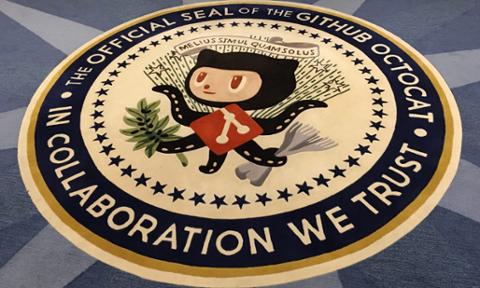Last year, GitHub spun up its Learning Lab to teach developers how its platform worked. Now, the company has gently opened Learning Lab to everyone, and removed its self-imposed limitations on what subject matter it covers.
When Learning Lab was first announced, we noted it was a deeper dive into how things such as version control and GitHub proper worked than most outside courses care to get into. Take an introductory course on a programming language via Udemy (or another site), and you’re bound to have a section on GitHub... but most don’t go beyond the basics.
Learning Lab provided GitHub with an avenue to teach us more about itself, and was (apparently) a soak test for launching it in a broader format to the masses. Though it opened its doors for everyone in April, this latest announcement brings new features, as well.
With this latest launch, Learning Lab has a new course builder UI, which will help course creators avoid the old YAML interface. GitHub says: “When you create a new course, the app will create the course repositories in your account before directing you to an editor. Then, you’re able to select bot actions, write responses, and validate that everything is working properly.”
Bots are used within Learning Lab as a sort of guided tour of the course, and as a teacher’s assistant: Bots can review code learners' input, comment on work, and approve or deny submitted snippets. Bots can also be trained by Learning Lab authors in case their ‘normal’ behavior gets in the way of the lesson plan. (Make all the ‘Clippy’ jokes you want, it’s actually very neat.)
Instructors can now embed videos from YouTube or Vimeo into the courses, and content can be localized per repo. There’s also a REST API for Learning Lab, suggesting that GitHub is happy if an educator wants to create their own site with embedded coursework. (The REST API is currently limited to single repos and entire courses.)

Last year, GitHub noted it had “future plans” to invite course authors from beyond its own walls. At the time, we wrote: “If this becomes a wide-ranging learning platform rather than a method for learning how git proper works, the Udemys and Udacitys of the world might need to take notice.” Suddenly, here we are, and that’s ringing true.
Taking a step back, GitHub has a lot going on right now, and a few of their more recent developments are poised to make Learning Lab shine. Learning Lab classes are essentially repos, and there’s no language specifically precluding an educator from monetizing that repo via GitHub’s Sponsors program someday. When Sponsors launched, GitHub specifically said “teachers” would be able to take advantage. Sponsors uses Stripe as its payment processor, so we’ll be curious if Stripe offers a way to let educators monetize via a website. (This would also be handy for subscriptions, which the Sponsors program accommodates.)
There’s also Spectrum, a Stack Overflow-style community GitHub acquired in December 2018. If Spectrum were to be woven more directly into GitHub proper, it would make interacting on repos much better. Currently, the ‘Issues’ tab is the best we have, but Spectrum is far more collaborative and conversational. Anyone who has ever taken a course online and asked a question in the ‘chat’ forum, only to be ignored, understands why a more social experience is low-hanging fruit to help Learning Lab stand out.
It’s the earliest days for Learning Lab as an open platform, so you won’t see much there. Keep an eye on the space, though; it’s bound to blossom as those interested in spinning up a course (maybe you!) catch wind of it. Monetization helps, and while Learning Lab may not be the most streamlined offering around, it’s got a strong audience via its parent site, and a lot of tooling that makes it more attractive than the code-along-with-me videos you’ll find on other learning platforms.


